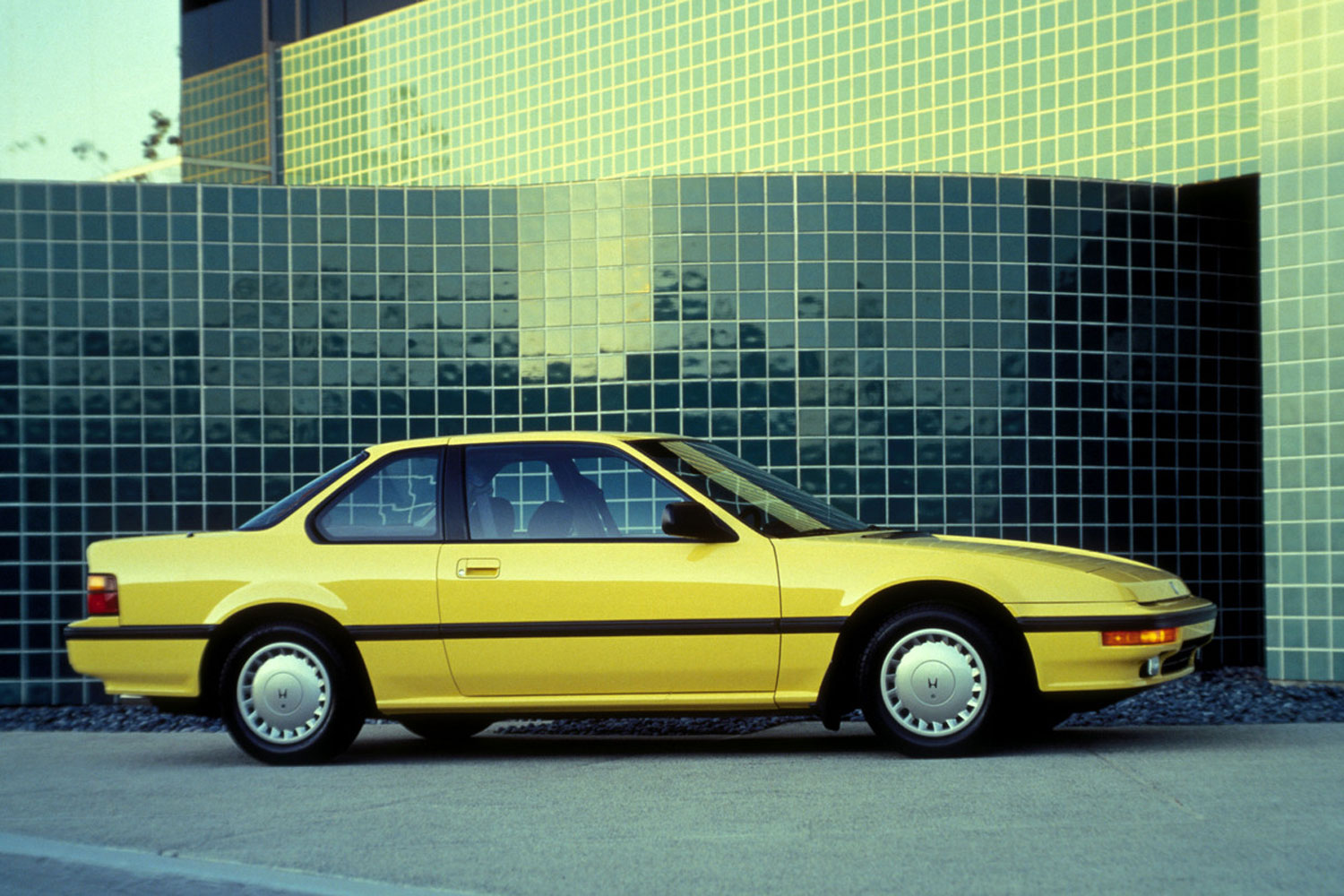5 Things to Consider When Shopping for a Classic Car
Owning a vintage car can be a wonderful experience—if you’re smart about your purchase.
 Honda
Honda
There’s plenty of appeal to a vintage car, be it the screen-free driving experience, the muscular growl of an old-school carbureted V8 engine, or the endless late-night tinkering opportunities afforded by an automotive project. But if you’ve never purchased a classic car before, you may find the process of acquiring one complex. Stick to these tips and you’ll do all right.
1. Decide How Much You Can Afford to Spend
Budgeting for a vintage car can be a challenge. It’s good advice to buy the best car you can afford, while keeping in mind that an old car may cost you way more than its initial sales price.
Don’t let that scare you off classic car ownership, though. Several websites offer rough estimates of what a specific collector car may cost based on various factors, including its model year, features, and condition. Utilizing data it collects from customers as well as publicly available auction results, classic car insurance provider
Once you get an idea of what your desired car might cost to buy, you’ll want to consider long-term running costs as well as insurance and potentially seasonal storage. Some owners also find value in joining car clubs and/or exhibiting their ride in shows, both of which will likely require some cash. There’s no simple equation to determine these expenses, since every old car’s needs are different. Browsing enthusiast forums and model-specific Facebook groups may provide some insight on problem and maintenance areas and their related costs, and a specialist mechanic might be able to clue you in to what a typical old car might cost in regular maintenance.
2. Ask Yourself What You Want Out of This Classic Car
Are you after a sunny-day cruiser to take for leisure drives, or do you want to cash in on your ride in a few years? Many vintage car enthusiasts fall somewhere in the middle before they consider the substantial costs of keeping an old car in tip-top shape. Know that it can be difficult to profit from an old car unless you know what you’re doing.
The collector car market has proven strong as of late, but not every model will appreciate in value. Earlier this year, Hagerty reported that some once-popular 1950s cars dipped by as much as 17% during 2021. Meanwhile, nostalgia for 1980s Japanese cars caused prices of the Honda Prelude and Mitsubishi Starion to jump by more than 80%. Pickups from that era have also seen big value increases.
Your classic car purchase may latch onto an upward trend, or it may not. Our best advice is to shop for a car that puts a smile on your face every time you slide behind the wheel.
3. Become an Expert on the Car You Want
You don’t need to write the book on the car that interests you, but picking up a well-regarded buyer’s guide on the model isn’t a bad idea. The more you know about the vehicle, the better off you’ll be while shopping, as you’ll be able to spot (and avoid) shoddy repair work, ask the right questions, and understand what modifications are worthwhile. You may even find yourself spouting marque-specific jargon that impresses the seller.
If you want an investment car, make sure the one you buy is genuine. Critically, this means learning to read vehicle identification numbers and any factory-applied data plates that will tell you how the car was originally assembled. It also means being able to spot what’s factory correct for a vehicle of that model year. Enthusiast forums can be an invaluable tool here. Don’t be afraid to ask questions—and follow-up questions.
Getting a second opinion is a smart call too. A pre-purchase inspection by a mechanic who’s well versed in older cars is always worthwhile, as it could save you from buying a problem car.
4. Be Prepared to Compromise
You missed your opportunity to walk into a Ford dealership in 1967 and order a Thunderbird built to your specifications. You’ll likely need to be flexible when it comes to what features and car colors you’ll accept.
If your budget leaves you searching for a model that needs work, you may want to head back to the drawing board. Perhaps there’s another model year or even a different vehicle that will offer similar appeal without breaking your budget.
Repainting a car in your preferred color is not for the faint of heart or light of wallet. To properly repaint an older car with a quality finish that extends to the door jambs, you’re looking at thousands of dollars. It may also lower the car’s value, since collectors often favor originality.
5. Buy What You Want
Whether you’re chatting up enthusiasts at a car show, asking questions in a forum or Facebook group, or talking to a well-qualified mechanic, you’ll find a stream of opinions in the vintage car world. While heeding expert advice can help you avoid making a costly purchase mistake, your classic car ultimately needs to make you happy. Choose one that you can see yourself enjoying.
Written by humans.
Edited by humans.
 Andrew Ganz
Andrew GanzAndrew Ganz has had cars in his blood ever since he gnawed the paint off of a diecast model as a toddler. After growing up in Dallas, Texas, he earned a journalism degree, worked in public relations for two manufacturers, and served as an editor for a luxury-lifestyle print publication and several well-known automotive websites. In his free time, Andrew loves exploring the Rocky Mountains' best back roads—when he’s not browsing ads for his next car purchase.
Related articles
View more related articles